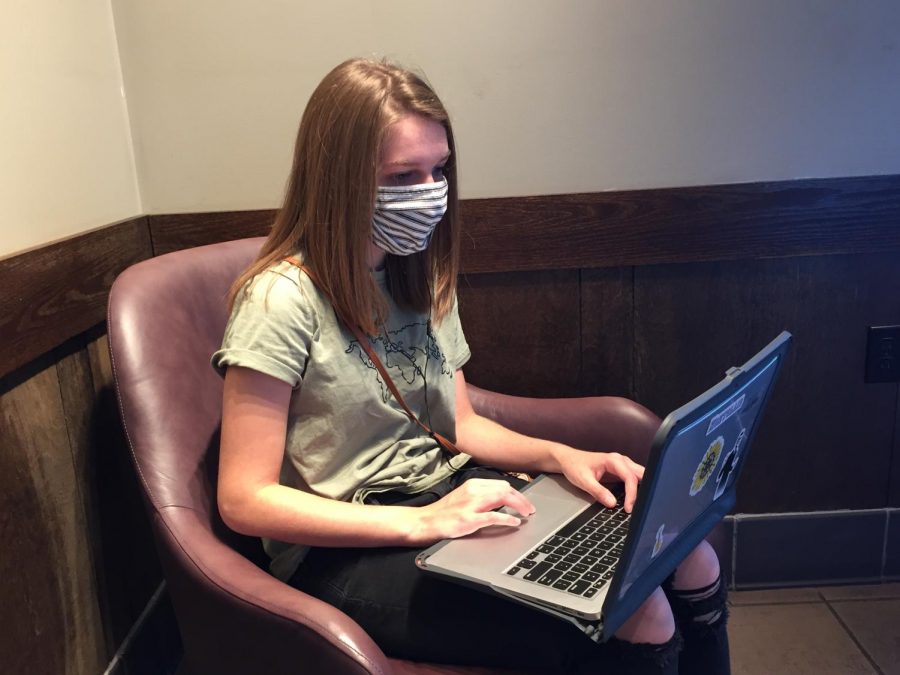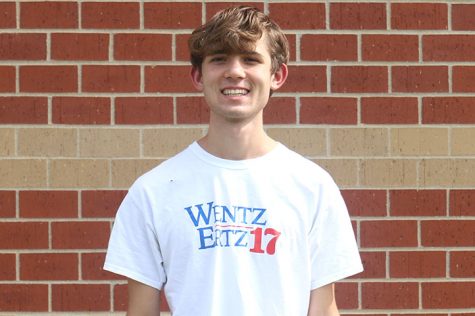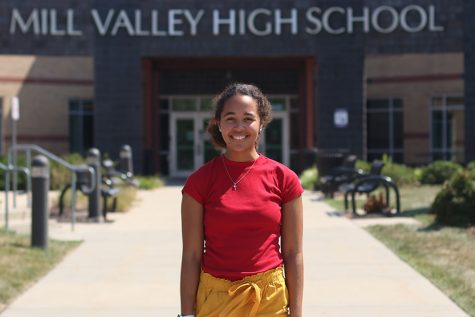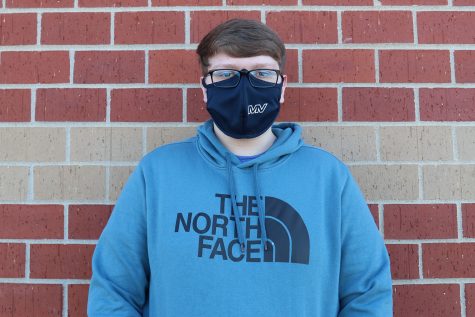College-bound seniors manage chaotic application process
Students have been challenged by upheaval to a usually straightforward college courting proceess
Using her laptop at a local Starbucks, senior Patty McClain engages with other applicants during a virtual college visit via Zoom on Thursday, Oct. 1
October 23, 2020
As COVID-19 upends the traditional college admissions process, forcing students to cancel visits and rewrite their applications, students — some of whom have been preparing their college plans for years — have been forced to react to the repercussions.
For senior Patty McClain, who’d scheduled tours at a litany of schools across the country including the University of Kansas, Kansas State University, and the University of Minnesota, cancellations threw a wrench in her plans.
In one especially inopportune sequence of events, McClain scheduled a visit to the University of Minnesota during spring break. She was “super excited” to check out the campus — until, just one day until her scheduled tour, an admissions officer called: the campus was shut down.
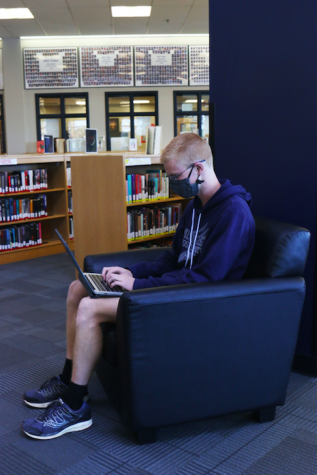
McClain expected her experiences on each campus tour to play a significant role in making her final college choice. Now? She says the alternatives make it difficult to ask the right questions and get a feel for each school she’s considering.
“The fact that I didn’t get to tour some of the schools that are high on my list and meet with some of their students makes me concerned that I won’t make the right decision,” McClain said. “It’s been a little bit stressful to go through this process feeling completely unprepared.”
Senior John Lehan suffered from similar difficulties touring schools. He’d planned a majority of his school visits for spring break, only to find every one of his tours cancelled.
He took a different route to get a feel for each university: virtual tours. Over the spring and summer, he registered for mass calls and Zooms with university admissions officers.
However, he’s still struggled to compare his experiences touring colleges in person last winter to his digital recruiting visits, a challenge that’s made Lehan concerned about his ultimate decision.
“Because my visits got split between in-person and virtual experiences, I’m not sure I could fairly compare my college options,” Lehan said. “It’s harder to make confident decisions under such conditions. Having uncertainty around such an important decision definitely causes some stress.”
McClain agrees with Lehan about the challenges of virtual experiences, noting that they make it more difficult to get a good sense of what a campus is like.
“Zoom meetings with college admissions counselors are rather uncomfortable for me,” McClain said. “I’ve found that it’s hard to ask the right questions and get a feel for a certain university virtually.”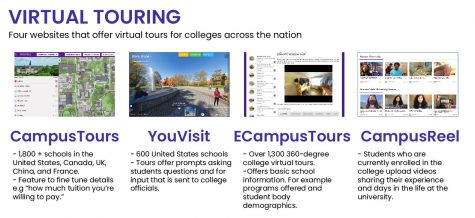
The changes to the admissions process don’t stop at cancelled tours, either. Over two-thirds of all universities have waived their ACT and SAT test score requirements because testing sessions were cancelled nationwide, according to the National Center for Fair and Open Testing.
The pandemic has also forced student-athletes uncertain about their future in college to make difficult decisions with incomplete information. Spring and fall sports schedules have been shortened, adjusted, or even outright cancelled. For Lehan, who runs track but lost his junior season to COVID-19, this muddied his decision.
“I wanted to factor athletics more into my decision, but COVID-19 cancelled the 2020 track season,” Lehan said. “That made it hard to gauge my chances at continuing athletics.”
Ultimately, though, some students remain optimistic about their college choices. McClain thinks she’ll still be able to make a good decision — though she’s wary about her experience in college once she makes it to her chosen school.
“My final decision probably won’t be influenced by the pandemic, but I do think my freshman year of college will be slightly abnormal, if not very abnormal,” McClain said.
Lehan shares that optimism. Though the details of the application process are different, his ultimate plans remain the same.
“Overall, my college plans remain largely unchanged,” Lehan said. “In the end, it’s the same process of filling out applications and choosing a college, just with less confidence.”



